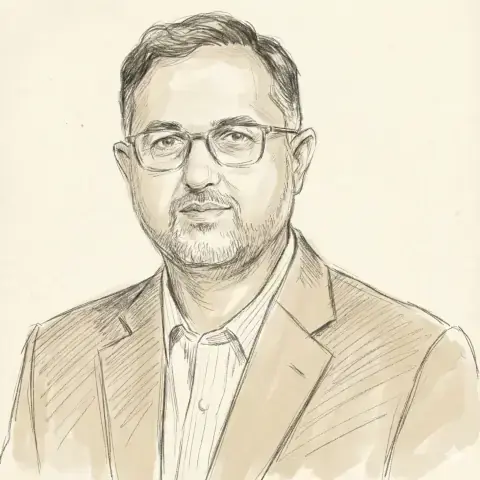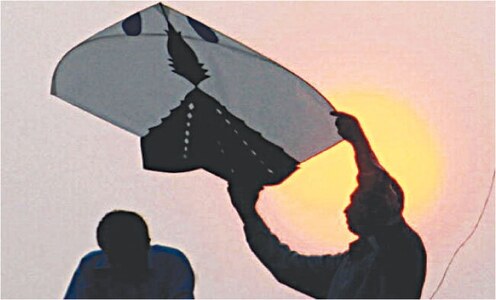ISLAMABAD: Pakistan and China agreed on Monday to elevate their bilateral relationship to ‘all weather strategic cooperative partnership’ that envisages strong defence and security ties, continued nuclear energy cooperation and expansion of trade.
The two sides also kicked off the implementation of $46 billion (A Ministry of Planning press release put the figure at $45bn) Pakistan-China Economic Corridor (PCEC), a combination of transport and energy projects, on the occasion of the visit of Chinese President Xi Jinping who reached here on a two-day trip. He was accompanied by wife Peng Liyuan and a high-level delegation. The visit was hailed by both sides as historic.
The government rolled out the proverbial red carpet when the Chinese leader landed at Chaklala Airbase, where President Mamnoon Hussain and Prime Minister Nawaz Sharif, along with federal ministers and all services chiefs, received him.
Earlier, eight Pakistan Air Force JF-17 Thunder fighters escorted President Xi’s plane when it entered Pakistani airspace. A twenty-one gun salute was presented to the Chinese leader as he alighted from his plane. He was later presented a guard of honour by a contingent of armed forces and PAF jets did the fly past.
Mr Xi’s visit to Pakistan is his first overseas trip this year. He will later visit Indonesia to attend the Asian-African Summit and events commemorating the 60th anniversary of the Bandung Conference before returning to China on Friday.
President Xi opened his trip with a meeting with Prime Minister Sharif and later signed off agreements worth $28bn, in addition to inaugurating and performing ground-breaking of many other projects by unveiling plaques — a ceremony performed at the Prime Minister’s Office.
A statement issued by the Foreign Office said: “The leaders ... agreed to elevate the Pakistan-China relationship to the all-weather strategic cooperative partnership, enriching the Pakistan-China community of shared destiny, to ensure the perpetual continuity in Pakistan-China friendship from generation to generation.”
Both sides emphasised each other’s importance in their foreign policy calculi and noted the “strategic significance” of their ties in the context of the evolving regional and global situation.
Pakistani side termed relations with China “cornerstone of its foreign policy”, while Beijing said Islamabad enjoyed a priority on its foreign policy agenda.
After the talks, Prime Minister Sharif told the media that he along with President Xi had taken “momentous decisions” that would take bilateral ties to new heights and “have deep and far-reaching impact for our common economic future and peace and stability in the region”.
About the agreements signed during Mr Xi’s visit, Mr Sharif said: “They have sound financial and technical backing and are being put on a fast track. We are starting a fresh phase in our geo-economic partnership that will create new jobs, start businesses, promote education and professional training and help eradicate poverty. This corridor will become a symbol for peace and prosperity.”
Both countries have been attaching a lot of importance to the economic corridor, a flagship project that is part of ‘the Belt and Road’ aims at promoting regional connectivity, besides increasing cooperation between the two countries in the field of energy, infrastructure, transport and industry.
“The two sides believed that the Silk Road Economic Belt and the 21st Century Maritime Silk Road initiatives represent a new model of regional and South-South cooperation, which will offer new opportunities for Asia’s rejuvenation and the common prosperity of all countries,” a joint statement on the visit said.
Continued N-energy cooperation envisaged; leaders of opposition parties meet Chinese leader
And while the FO statement and Mr Sharif in his remarks emphasised that the PCEC would benefit “all regions and entire population”, it was only Punjab Chief Minister Shahbaz Sharif who had been invited to the ceremony to welcome the Chinese leader.
A Silk Road Fund has been created to fund corridor projects. Karot hydropower was the first project picked for investment by the fund.
TRADE: The two sides committed to increasing their bilateral trade to $20 billion over the next three years and expedite discussions on a free trade agreement. The current level of trade has crossed $15bn.
“The two sides decided to speed up the second round of talks on the Pakistan-China free trade agreement and are ready to open up the banking industry wider to each other under the Pakistan-China agreement on trade in services,” the joint statement said.
DEFENCE COOPERATION: Pakistan and China agreed to strengthen their already close defence ties. The two sides pledged to “deepen cooperation in areas such as joint exercises and training, personnel training and equipment and technology, and expand cooperation in defence technology and production,” the joint statement said.
Mr Xi met Chairman Joint Chiefs of Staff Gen Rashad Mehmood, Army Chief Gen Raheel Sharif, Navy Chief Admiral Muhammad Zakaullah and Air Chief Air Chief Marshal Sohail Aman.
NUCLEAR ENERGY: In another important agreement, Islamabad and Beijing agreed to continue their cooperation in the field of nuclear energy.
“They agree to continue bilateral cooperation in civil nuclear energy under IAEA safeguards, in line with their respective bilateral and multilateral commitments,” the statement said.
China has assisted Pakistan in building six nuclear reactors with a total installed capacity of 3.4 million kilowatts. The upcoming 2200MW nuclear power plants – K-2 and K-3 – in Karachi are also being set up with Chinese assistance. Pakistan has set the target of generating 8800MW from nuclear power and has been eyeing Chinese cooperation.
China, according to the statement, praised Pakistan’s move towards mainstreaming into the global non-proliferation regime and its engagement with the Nuclear Suppliers Group.
China said it was “ready to strengthen communication and coordination with Pakistan” in the field of non-proliferation and civilian nuclear programme.
SECURITY COOPERATION: Noting that their security interests were inter-connected, Pakistan and China vowed to continue to work together to fight the East Turkistan Islamic Movement, a terrorist group active in China’s Xinjiang province but also has bases in Pakistan’s tribal areas.
“China commended Pakistan’s major contribution to the international counter-terrorism efforts, and will continue to support Pakistan in implementing its counter-terrorism strategy in accordance with its national conditions and enhancing counter-terrorism capacity building,” the joint statement said.
The two sides said they would collaborate in promoting the concept of common Asian security and seek to expand their bilateral security cooperation under the rubric of their strategic dialogue and counter-terrorism consultations.
SPACE & MARITIME: There were also agreements on cooperation in space technology applications and maritime research.
“Both sides agreed to further strengthen bilateral cooperation in space technology applications, expedite the integration process of remote sensing, telecommunication and navigation technologies for their extensive application in communications, hydrology, geology, disaster management, port management, mineral prospection, food security, water prospection and other areas for seeking potential advantage in social and economic development,” the statement said.
Both sides agreed to fully leverage the Pakistan-China maritime cooperation dialogue mechanism and strengthen policy dialogue and strategic communication on maritime issues for increased cooperation on navigation security, marine economy, exploration and utilisation of marine resources, marine scientific research and environmental protection.
There was also an agreement on establishment of a Joint Marine Scientific Research Centre in Pakistan and holding training course for South Asian countries on maritime scientific research.
Khawar Ghumman adds on meeting with political leadership: It wasn’t only the country’s entire civilian and military leadership that in an unprecedented show received the Chinese president at the airport, politicians from opposition political parties also stood in line, albeit at a different venue, to shake hands with the visiting dignitary.
PPP Co-Chairman Asif Ali Zardari, PTI Chairman Imran Khan, JUI-F chief Maulana Fazlur Rehamn, JI General Secretary Liaquat Baloch, PML-Q President Chaudhry Shujaat Hussain, Qaumi Watan Party chief Aftab Sherpao, MQM leader Dr Farooq Sattar were shown on national television walking up to the Chinese president one by one to shake hands and have a brief chat.
They also attended the banquet hosted by Prime Minister Sharif at the PM House.
JOINT SESSION: President Xi will address the joint session of parliament on Tuesday.
Published in Dawn, April 21st, 2015
On a mobile phone? Get the Dawn Mobile App: Apple Store | Google Play




































